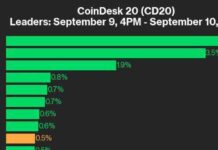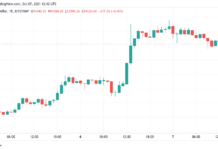Institutional investors are not worried about the lack of staking in U.S. spot ether exchange-traded funds (ETFs), according to Ophelia Snyder, co-founder of 21Shares. While retail investors may be disappointed, Snyder believes there is a potential business opportunity for providers to offer separate products to cater to both groups.
The upcoming listing of spot ether ETFs in the U.S. has been approved by the Securities and Exchange Commission (SEC), with final approvals expected in the coming months. Providers have chosen to exclude staking from their applications to avoid regulatory obstacles.
Snyder explained that staked assets can impact liquidity, especially if the unstaking period is extended. Despite concerns that the lack of staking could deter investor interest, Snyder believes institutional investors are not deterred by this issue. JPMorgan previously projected significant inflows into ether ETFs by 2024, with the potential for even higher inflows if staking was allowed.
21Shares, a prominent digital asset manager, is well-positioned in the institutional market and is applying for a U.S. spot ether ETF that excludes staking. The company’s expertise in managing exchange-traded products in Europe, including an ether ETP with staking, demonstrates their understanding of investor needs.
In addition to investor preferences, the tax treatment of staking rewards in the U.S. remains uncertain, which could impact the attractiveness of staked products to institutional investors. Snyder emphasized the importance of creating a favorable environment for institutions to participate in the market.
Overall, the lack of staking in U.S. spot ether ETFs is not a major concern for institutional investors, according to Snyder. While retail investors may have different preferences, providers have the opportunity to offer a variety of products to meet the needs of both groups. The evolving regulatory landscape and tax considerations will continue to shape the market for ether ETFs in the future.














